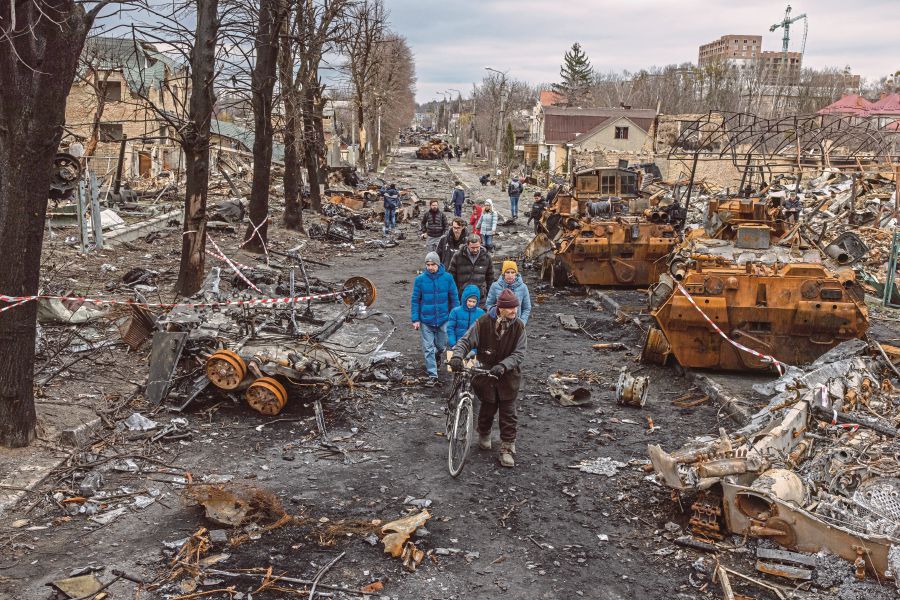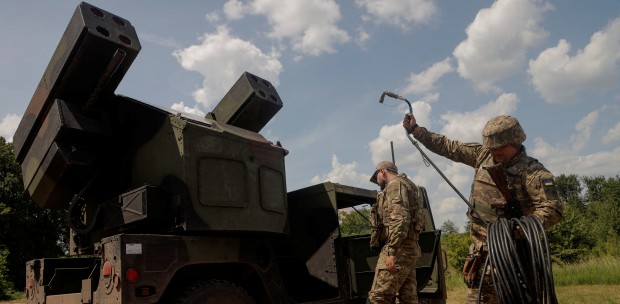THE Russia-Ukraine conflict is now into its second year with no end in sight.
If anything, it looks to be intensifying. There are reports that China, which has thus far given only rhetorical support to the argument that it is the Western alliance's eastward expansion that precipitated actions in Ukraine, may be considering supplying Russia with arms.
Both the United States and its European allies have publicly made clear that China providing military aid to Russia would be crossing a "red line" with consequences too scary for the world to contemplate.
China entering the fray in aid of Russia will mean all four global powers — Russia, China, the United States and Europe — getting directly or indirectly involved in Ukraine.
Much of the rest of the world look askance as the major powers slug it out in the conflict, preferring to turn the other way and say it is none of their business.
Even as the West and Russia and China go on a diplomatic offensive to try to win others over to their respective sides, most countries know they are largely powerless to do anything to resolve the conflict.
If most countries feel they have no dog in the fight, it stands to reason they prefer not to take a stand on the conflict.
Even if Ukraine is viewed as the victim of armed aggression and therefore worthy of global sympathy, most view the conflict through the prism of great-power rivalry in which they will be damned no matter which side they support.
It is a sad commentary on the state of the world when a supposed sacrosanct principle against the violation of sovereign national borders by one country — whether big or small — cannot be unambiguously upheld.
In the same way that many condemned the US invasion of Iraq, Russia's invasion of Ukraine, likewise, should not be condoned.
We may be burying our collective heads in the sand if we thought that the larger global community of nations does not have a stake in the Russia-Ukraine conflict.
Given that all the preeminent global powers (all five permanent members of the United Nations Security Council, no less) are drawn into this conflict, global peace is being threatened as never before since the end of World War 2.
No country can, therefore, be sanguine in the face of such a consequential conflict.
The rest of the world is already being drawn wittingly or unwittingly into this conflict and adversely impacted by it directly or indirectly, such as through Western economic sanctions imposed on Russia or trade routes in or near the war zone constricted or altogether impassable.
Clearly, the global community of nations not involved in the conflict cannot afford to just sit by.
When the leading nations of the world are up in arms and at each other's throats, it behoves other nations and especially the likes of India, Japan and Indonesia in Asia as well as Brazil, Mexico, Argentina and South Africa to come forward and at least urge that the United Nations Charter be respected and adhered to.
In the Cold War between the US and the ex-Soviet Union, the latter was clearly an increasingly bankrupt economy that eventually crumbled on its own deadweight, especially after the US opened up to China.
Now, the rise of China and its friendship with Russia put the US on the defensive, although any talk of a US on the decline may be premature.
Cold War II, as some characterise the current state of geopolitics, is that much more fraught as a result.
* The writer views developments in the nation, region and wider world from his vantage point in Kuching






